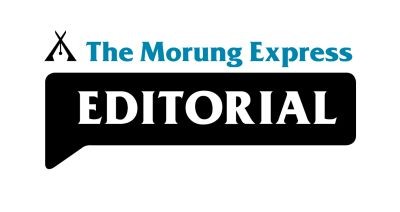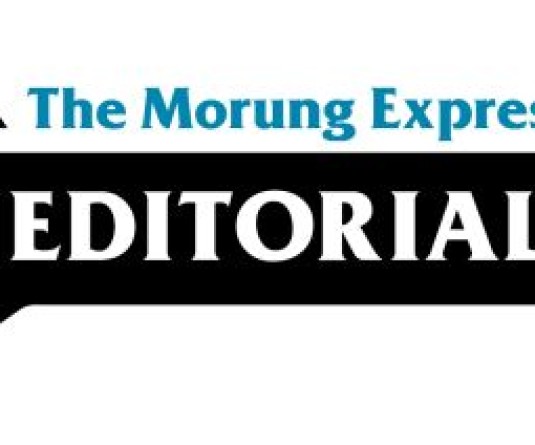
‘Media as an instrument of public accountability’ was the theme for this year’s National Press Day. With the rest of India, the Kohima Press Club along with the Directorate of Information and Public Relations organized a programme to commemorate this day. The theme was timely and a much needed topic worthy of a national press day. In fact the year 2011 has been a truly remarkable year. The one thing that all of us would have noticed is the upheaval taking place within the present system. The uprising in the Arab world, the Occupy Movements, starting from Wall Street now engulfing most of the western world and closer home the anti-corruption movement led by Anna Hazare. It becomes very clear that something is not right with our present state of affairs—abuse of power, corruption, incompetence of people in authority and as result there is an outpouring of people’s anger against the present system.
Closer home all of us are aware of the fact that our government system has deteriorated almost beyond repair. Whether it is the politician, the government servant, village council or even the public-the voter, no one is blameless. It is a collective failure. A culture of indifference and the lack of accountability is at the heart of the problem. We need to strengthen not just our institutions but also our moral resolve because at the end of the day accountability is about personal action. The media must begin by educating our society about values—honesty, hard-work and transparency. At the same time we have to understand that a wrong action cannot be brought into account if we do not have the necessary checks and balances. In fact here in Nagaland the system of checks and balances is not even working. There is too much of discretionary powers vested in the political executive. Our Ministers must be one of the most powerful people on this planet. Even a mere paper chit signed by these people can become law unto themselves. This is the state of affairs in our small State of Nagaland.
The press is the Fourth Pillar of democracy after the Executive, Legislature and Judiciary. Someone has rightly said that a free press is the oxygen of democracy. The press has to demand accountability from the three wings of the government. It should be a watchdog over the government and must remain vigilant against abuse of power. The bigger question is whether the Press as the Fourth Pillar of democracy is living up to its role. The media needs to do its own reflection, a soul searching, a self introspection and see where we are going wrong and make corrections. This is important if the media is to be a powerful instrument for public accountability. Those of us in the media must be even more conscious of our place as the fourth pillar of democracy and our role and calling in this esteemed position. This is the premise we should start off with—the media’s own accountability.
It can become quite academic if we look at definitions of what the role of the media is all about. In fact the media’s role is quite broad. We need to go beyond the popular notion we have about how as media practitioners we are supposed to inform, educate and communicate. If we want to look at ourselves as ‘real instrument for ensuring public accountability’ we need to reinvent ourselves from the conventional IEC model. If the press fraternity is merely satisfied with informing, educating or communicating, we are not doing justice to the noble calling—to be an independent and free press, to be a guardian of democracy, act as a watchdog in our society and to represent the voice of the people.
Closer home all of us are aware of the fact that our government system has deteriorated almost beyond repair. Whether it is the politician, the government servant, village council or even the public-the voter, no one is blameless. It is a collective failure. A culture of indifference and the lack of accountability is at the heart of the problem. We need to strengthen not just our institutions but also our moral resolve because at the end of the day accountability is about personal action. The media must begin by educating our society about values—honesty, hard-work and transparency. At the same time we have to understand that a wrong action cannot be brought into account if we do not have the necessary checks and balances. In fact here in Nagaland the system of checks and balances is not even working. There is too much of discretionary powers vested in the political executive. Our Ministers must be one of the most powerful people on this planet. Even a mere paper chit signed by these people can become law unto themselves. This is the state of affairs in our small State of Nagaland.
The press is the Fourth Pillar of democracy after the Executive, Legislature and Judiciary. Someone has rightly said that a free press is the oxygen of democracy. The press has to demand accountability from the three wings of the government. It should be a watchdog over the government and must remain vigilant against abuse of power. The bigger question is whether the Press as the Fourth Pillar of democracy is living up to its role. The media needs to do its own reflection, a soul searching, a self introspection and see where we are going wrong and make corrections. This is important if the media is to be a powerful instrument for public accountability. Those of us in the media must be even more conscious of our place as the fourth pillar of democracy and our role and calling in this esteemed position. This is the premise we should start off with—the media’s own accountability.
It can become quite academic if we look at definitions of what the role of the media is all about. In fact the media’s role is quite broad. We need to go beyond the popular notion we have about how as media practitioners we are supposed to inform, educate and communicate. If we want to look at ourselves as ‘real instrument for ensuring public accountability’ we need to reinvent ourselves from the conventional IEC model. If the press fraternity is merely satisfied with informing, educating or communicating, we are not doing justice to the noble calling—to be an independent and free press, to be a guardian of democracy, act as a watchdog in our society and to represent the voice of the people.






